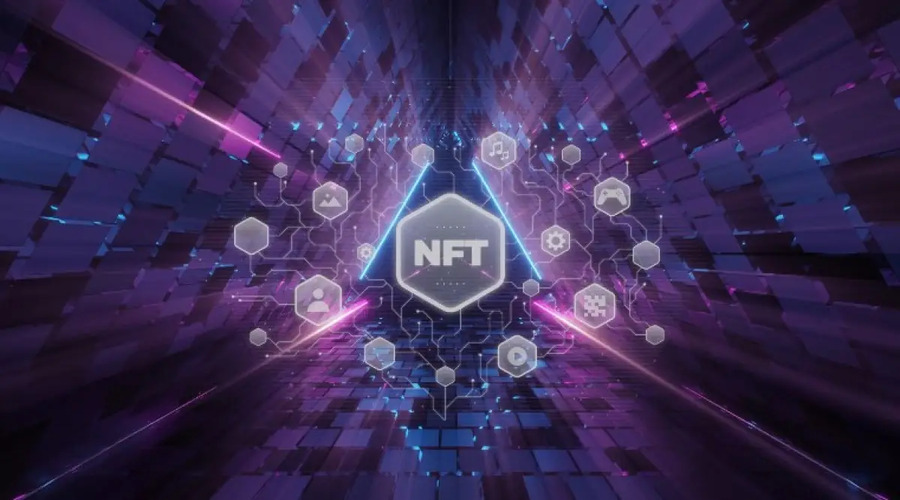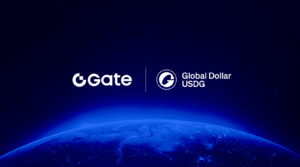Ethical Considerations in NFT Market Manipulation: The Impact on Artists and Collectors

Ethical Considerations in NFT Market Manipulation: The Impact on Artists and Collectors
Introduction
The surge of non-fungible tokens (NFTs) has brought both excitement and concerns within the art and collectibles market. While NFTs provide unique opportunities for artists and collectors, the issue of market manipulation has raised ethical considerations. This article delves into the impact of NFT market manipulation on artists and collectors, exploring the importance of maintaining ethical practices in this evolving landscape.
Understanding NFT Market Manipulation
Definition and Types of Market Manipulation
Market manipulation refers to deliberate actions aimed at artificially influencing the price or demand for NFTs. This can include practices such as pump and dump schemes, wash trading, and false advertising. These activities distort market dynamics and undermine the trust and fairness of the NFT ecosystem.
Challenges Faced by Artists and Collectors
Artists and collectors are particularly vulnerable to the impact of market manipulation. Manipulative practices can devalue artists’ work, exploit their creative efforts, and hinder their ability to earn a fair income. Collectors may face financial losses when manipulated prices collapse or when they unknowingly purchase counterfeit or misrepresented NFTs.
The Ethical Implications for Artists
1. Exploitation of Artists’ Work
Market manipulation can exploit artists by inflating the value of their NFTs through deceptive tactics. This can lead to a distortion of the true worth of their creations, making it difficult for artists to establish fair pricing and receive appropriate compensation for their work.
2. Diminished Trust and Reputation
When artists’ work is associated with manipulative practices, their reputation and credibility can suffer. The art community depends on trust and authenticity, and any association with market manipulation can tarnish an artist’s standing, making it challenging to establish meaningful connections with collectors and other artists.
3. Impact on Artistic Integrity
Artistic integrity is essential for artists, and market manipulation can undermine this core principle. Artists may feel pressured to create work specifically tailored for quick profit rather than pursuing their artistic vision and expression. This compromises the authenticity and diversity of artistic creations within the NFT space.
Effects on Collectors and Investors

1. Financial Losses and Deceptive Practices
Market manipulation exposes collectors and investors to significant financial risks. Pump and dump schemes can cause prices to artificially inflate before collapsing, resulting in substantial losses for those who bought at inflated prices. Deceptive practices, such as false advertising or selling counterfeit NFTs, can further erode trust and cause financial harm to unsuspecting collectors.
2. Erosion of Trust in the NFT Market
Market manipulation damages trust in the NFT market as a whole. It creates an atmosphere of uncertainty and skepticism, discouraging genuine collectors and investors from participating. Restoring trust is crucial to ensure the long-term viability and sustainability of the NFT ecosystem.
3. Reduced Accessibility for Genuine Collectors
Market manipulation can create barriers for genuine collectors who seek to acquire NFTs for personal enjoyment rather than speculative purposes. Artificially inflated prices and the prevalence of counterfeit or misrepresented NFTs make it challenging for collectors to access authentic and fairly priced works.
Transparency and Accountability
1. Importance of Transparent Market Practices
Promoting transparency in NFT transactions is essential to combat market manipulation. Open and honest communication about pricing, ownership rights, and the history of NFTs helps establish trust and confidence among artists, collectors, and investors.
2. Regulating and Reporting Suspicious Activities
Marketplaces and platforms should implement robust mechanisms for identifying and reporting suspicious activities related to market manipulation. This includes monitoring trading patterns, identifying unusual price movements, and investigating reported cases promptly. Collaborative efforts between platforms, artists, collectors, and regulatory bodies are vital to create a safe and accountable environment.
3. Encouraging Responsible Participation
All participants in the NFT market have a responsibility to engage ethically and responsibly. Artists should be mindful of their pricing strategies and avoid engaging in manipulative practices. Collectors and investors should conduct due diligence and be vigilant against potential scams or manipulative schemes. Responsible participation fosters a healthier and more sustainable NFT ecosystem.
Educating Artists, Collectors, and the Community
1. Raising Awareness About Market Manipulation Risks
Educational initiatives play a crucial role in raising awareness about market manipulation risks. Artists, collectors, and the broader community need to understand the various types of manipulation and their implications. This knowledge empowers individuals to make informed decisions and take proactive measures to protect themselves and the integrity of the NFT market.
2. Promoting Ethical Guidelines and Best Practices
Establishing and promoting ethical guidelines and best practices is instrumental in fostering an ethical NFT market. Artists, collectors, and platforms should adhere to these guidelines, which may include principles of transparency, authenticity, and fair pricing. By upholding ethical standards, the NFT community can nurture a trustworthy and sustainable environment.
3. Building a Supportive Community
Creating a supportive community is essential to address ethical considerations in the NFT market. Artists, collectors, and platforms can collaborate to share insights, experiences, and best practices. By fostering a sense of unity and shared responsibility, the community can collectively work towards minimizing market manipulation and promoting ethical conduct.
Collaboration and Self-Regulation
1. Establishing Industry Standards and Self-Regulatory Measures
Collaboration between artists, collectors, platforms, and regulatory bodies is necessary to establish industry standards and self-regulatory measures. By collectively defining ethical frameworks, code of conduct, and compliance guidelines, the NFT market can better address market manipulation and create a fair and transparent environment for all participants.
2. Cooperation Between Platforms, Artists, and Collectors
Close cooperation between platforms, artists, and collectors is crucial to combat market manipulation effectively. Platforms can proactively engage with artists and collectors, seeking their feedback, and implementing necessary measures to detect and prevent manipulative practices. By working together, stakeholders can create an ecosystem that promotes ethical behavior and protects the interests of all participants.
3. Ensuring Fair and Equitable Opportunities for All Participants
An ethical NFT market should strive to provide fair and equitable opportunities for artists and collectors. Platforms should aim to reduce entry barriers, support emerging artists, and encourage diversity and inclusivity. This fosters an environment where artists can thrive, collectors can access quality artwork, and market manipulation finds no place.
Legal Implications and Regulatory Frameworks
1. Existing Legal Frameworks for Addressing Market Manipulation in the NFT Market
The NFT market operates within existing legal frameworks that govern securities and commodities markets. However, the unique characteristics of NFTs require regulators to adapt and develop specific regulations. Securities laws, anti-fraud provisions, and consumer protection regulations can provide a foundation for addressing market manipulation in the NFT ecosystem.
2. Regulatory Challenges and the Need for Updated Regulations
Regulators face challenges in keeping pace with the rapidly evolving NFT market. The decentralized and global nature of NFT transactions presents jurisdictional complexities. Regulators must collaborate and adapt to the unique technological and operational aspects of NFTs to effectively address market manipulation. Updated regulations can help ensure investor protection and market integrity.
3. Potential Enforcement Actions and Penalties for Manipulative Practices
Regulators have the authority to take enforcement actions against individuals or entities engaged in market manipulation. Penalties for such practices can include fines, disgorgement of profits, cease and desist orders, and even criminal charges. Strong enforcement actions serve as a deterrent and contribute to maintaining a fair and transparent NFT market.
Impact on Emerging Artists and Accessibility
1. The Effect of Market Manipulation on Emerging Artists Trying to Establish Themselves
Market manipulation can have a detrimental impact on emerging artists seeking recognition and success in the NFT market. When their work is subjected to manipulation, their true talent and artistic merit may be overshadowed, making it challenging for them to gain visibility and build a dedicated audience. This can hinder their ability to establish themselves in the competitive NFT space.
2. Barriers to Entry for New Artists Due to Inflated Prices and Manipulation
Market manipulation, particularly in the form of artificially inflated prices, can create significant barriers to entry for new artists. The soaring prices of NFTs driven by manipulative practices make it difficult for emerging artists to attract collectors and sell their work at fair values. This dynamic may discourage talented artists from entering the NFT market or undermine their confidence in its sustainability.
3. Strategies to Promote Accessibility and Support for Emerging Artists in the NFT Market
To mitigate the impact of market manipulation on emerging artists, it is crucial to promote accessibility and support mechanisms. Initiatives such as mentorship programs, dedicated platforms for emerging artists, and collaborations with established artists can provide visibility and opportunities. Educating collectors about the value of supporting emerging talent can also help level the playing field and encourage a diverse and inclusive NFT ecosystem.
Psychological and Emotional Effects on Artists and Collectors
1. The Emotional Toll on Artists When Their Work Is Manipulated or Undervalued
Market manipulation can take a significant emotional toll on artists whose work is manipulated or undervalued. Artists invest their creativity, time, and passion into their creations, and when their work is subject to manipulative practices, it can lead to feelings of frustration, disappointment, and a loss of faith in the NFT market. The emotional impact can be profound and may affect their artistic motivation and overall well-being.
2. Psychological Impact on Collectors Who Fall Victim to Manipulative Practices
Collectors who fall victim to manipulative practices may experience a range of psychological effects. Financial losses, feelings of betrayal, and a sense of being deceived can lead to emotional distress, mistrust, and skepticism. Collectors may become more cautious or even withdraw from the NFT market altogether, impacting their willingness to engage in future transactions and invest in artists’ work.
3. Coping Mechanisms and Support Systems for Artists and Collectors in Navigating Market Manipulation
Establishing coping mechanisms and support systems is crucial for artists and collectors in navigating the challenges of market manipulation. Artists can seek support from artist communities, engage in self-care practices, and leverage platforms that prioritize fair practices. Collectors can connect with like-minded individuals, share experiences, and rely on reputable platforms that prioritize transparency and trust. Open communication and awareness about the psychological impact of market manipulation can foster resilience and a supportive ecosystem.
Conclusion
Ethical considerations in NFT market manipulation are paramount to protect artists, collectors, and the integrity of the NFT ecosystem. By understanding the impact on artists and collectors, promoting transparency, educating participants, and fostering collaboration and self-regulation, the NFT community can build a sustainable and ethical marketplace. Embracing ethical practices ensures that the potential of NFTs is realized while maintaining the trust and integrity of the art and collectibles market.







